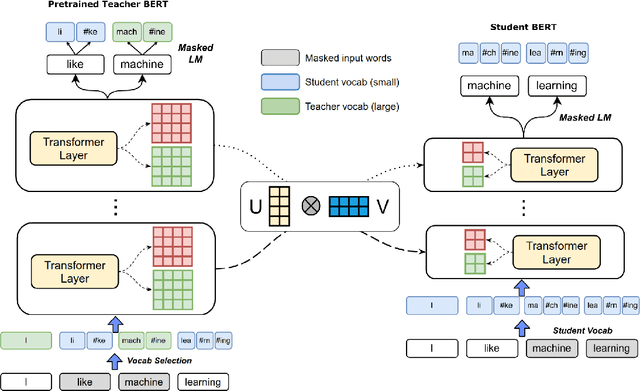Extreme Language Model Compression with Optimal Subwords and Shared Projections
Paper and Code
Sep 25, 2019



Pre-trained deep neural network language models such as ELMo, GPT, BERT and XLNet have recently achieved state-of-the-art performance on a variety of language understanding tasks. However, their size makes them impractical for a number of scenarios, especially on mobile and edge devices. In particular, the input word embedding matrix accounts for a significant proportion of the model's memory footprint, due to the large input vocabulary and embedding dimensions. Knowledge distillation techniques have had success at compressing large neural network models, but they are ineffective at yielding student models with vocabularies different from the original teacher models. We introduce a novel knowledge distillation technique for training a student model with a significantly smaller vocabulary as well as lower embedding and hidden state dimensions. Specifically, we employ a dual-training mechanism that trains the teacher and student models simultaneously to obtain optimal word embeddings for the student vocabulary. We combine this approach with learning shared projection matrices that transfer layer-wise knowledge from the teacher model to the student model. Our method is able to compress the BERT_BASE model by more than 60x, with only a minor drop in downstream task metrics, resulting in a language model with a footprint of under 7MB. Experimental results also demonstrate higher compression efficiency and accuracy when compared with other state-of-the-art compression techniques.
 Add to Chrome
Add to Chrome Add to Firefox
Add to Firefox Add to Edge
Add to Edge